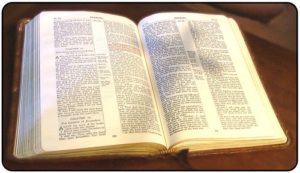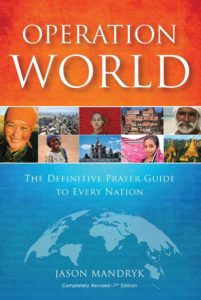NEW TESTAMENT READING: MARK 7:1-23
TODAY’S READINGS: JESUS- OUR PURITY; JESUS AND THE DAY OF ATONEMENT
One of the benefits of reading through the One Year Bible is that we read a daily portion from both the New Testament and the Old Testament and can readily see how they correlate together. It has been said:
The New in the Old Concealed
We can see how busy the Holy Spirit is in the Book of Leviticus prefiguring the person and work of Jesus in the sacrifices and offerings. The Spirit was communicating through the laws of cleansing, the required sacrifices for making amends for sin, and the rituals of the priesthood, a shadow image of what was to come in the New Covenant- the perfect atoning sacrifice and saving life of Christ.
“All Scripture is inspired by God” (2 Tim 3:16).
“For the testimony of Jesus is the spirit of prophecy” (Rev 19:10).
The writer of the Book of Hebrews affirms that the sacrifices and offerings in the Old Mosaic Covenant prefigured what would be presented to God on our behalf in the offering of the body of Christ on the cross. He quotes the Psalm we read yesterday, Psalm 40:
Hebrews 10:5-10 (NASB)
5 Therefore, when He comes into the world, He says, “SACRIFICE AND OFFERING YOU HAVE NOT DESIRED, BUT A BODY YOU HAVE PREPARED FOR ME; 6 IN WHOLE BURNT OFFERINGS AND sacrifices FOR SIN YOU HAVE TAKEN NO PLEASURE. 7 THEN I SAID, ‘BEHOLD, I HAVE COME (IN THE SCROLL OF THE BOOK IT IS WRITTEN OF ME) TO DO YOUR WILL, O GOD.’ 8 After saying above, “SACRIFICES AND OFFERINGS AND WHOLE BURNT OFFERINGS AND sacrifices FOR SIN YOU HAVE NOT DESIRED, NOR HAVE YOU TAKEN PLEASURE in them” (which are offered according to the Law), 9 then He said, “BEHOLD, I HAVE COME TO DO YOUR WILL.” He takes away the first in order to establish the second. 10 By this will we have been sanctified through the offering of the body of Jesus Christ once for all.
The inspired Old Covenant laws were prophesying the requirements for reconciliation between a holy God and sinful men. These are perfectly fulfilled in Christ.
Today’s reading from the Gospel of Mark in the New Testament is particularly relevant to what we have been reading of the cleanliness laws from the Book of Leviticus in the Old Testament.
Mark 7:1-2 (NASB) The Pharisees and some of the scribes gathered around Him when they had come from Jerusalem, 2 and had seen that some of His disciples were eating their bread with impure hands, that is, unwashed.
The Pharisees are outraged that the disciples of Jesus were not strictly conforming to their traditions based on the laws of cleanliness. Mark offers an explanation to his predominantly Roman audience knowing that they were largely unfamiliar with the Jewish laws and traditions:
Mark 7:3-4 (NASB) 3 (For the Pharisees and all the Jews do not eat unless they carefully wash their hands, thus observing the traditions of the elders; 4 and when they come from the market place, they do not eat unless they cleanse themselves; and there are many other things which they have received in order to observe, such as the washing of cups and pitchers and copper pots.)
The Pharisees wanted to discredit the ministry of Jesus by implying that the behavior of His disciples was not in conformity to the Law.
Mark 7:5 (NASB) 5 The Pharisees and the scribes asked Him, “Why do Your disciples not walk according to the tradition of the elders, but eat their bread with impure hands?”
You will remember that if a person had an infectious skin disease such as a boil, rash, or sores, or if a person came in contact with a dead animal or human being, or mildew on their clothes, articles in their home, or their house itself if they had any kind of bodily discharge or ate meat from an animal considered unclean, they would be considered ritually impure. This meant that they were not permitted to worship God with the community until they were pronounced clean.
Tim Keller helps to put these ceremonial laws in perspective in his book, “King’s Cross”:
“Such strenuous boundaries seem harsh to us, but if you think about it, they are not as odd as they sound. Over the centuries, people have fasted from food during seasons of prayer. Why? It’s an aid for developing spiritual hunger for God. Also, people of various faiths kneel for prayer. Isn’t that rather uncomfortable? It’s an aid for developing spiritual humility. So, the washings and efforts to stay clean and free from dirt and disease that were used by religious people in Jesus’ day were a kind of visual aid that enabled them to recognize that they were spiritually and morally unclean and couldn’t enter the presence of God unless there was some kind of spiritual purification.
If you are going to meet with somebody who is particularly important to you—for that big date or important job interview— you wash, you brush your teeth, you comb your hair. What are you doing? Getting rid of uncleanness, of course. You don’t want a speck or stain on you. You don’t want to smell bad. The cleanness laws were the same idea. Spiritually, morally, unless you’re clean, you can’t be in the presence of a perfect and holy God”. (Tim Keller, King’s Cross, p.71)
Jesus certainly agreed with the fact that we are all in need of cleansing before God. But He disagreed with them about the source of uncleanness.
Mark 7:14-16 (NASB) 14 After He called the crowd to Him again, He began saying to them, “Listen to Me, all of you, and understand: 15 there is nothing outside the man which can defile him if it goes into him; but the things which proceed out of the man are what defile the man. 16 [“If anyone has ears to hear, let him hear.”]
And then Jesus explains what truly needs cleansing. A diet of Kosher foods cannot make him clean. Nor can unclean food defile him. It is the heart that is the source of defilement. It is the heart that needs purification.
Mark 7:21-23 (NASB) 21 “For from within, out of the heart of men, proceed the evil thoughts, fornications, thefts, murders, adulteries, 22 deeds of coveting and wickedness, as well as deceit, sensuality, envy, slander, pride and foolishness. 23 All these evil things proceed from within and defile the man.”
The disciples ask for a further explanation of His one-sentence parable:
And He said to them, “Are you so lacking in understanding also? Do you not understand that whatever goes into the man from outside cannot defile him, 19 because it does not go into his heart, but into his stomach, and is eliminated?” (Thus He declared all foods clean.) (Mark 7:18-19)
Mark gives another rare editorial explanation to his predominantly Romans readership—. Jesus was at this time declaring that all foods were clean.
The Mosaic regulations regarding the need for cleansing were visual object lessons to highlight what is needed to approach a holy God. The Psalmist put it this way:
Psalm 24:3-4 (NASB) 3 Who may ascend into the hill of the LORD? And who may stand in His holy place? 4 He who has clean hands and a pure heart, who has not lifted up his soul to falsehood and has not sworn deceitfully.
The laws of cleansing, like food, enter the body and leave the body without the power to cleanse the heart of its defilement. Jesus’ parable shows that it bypasses the heart altogether.
External conformity to purification regulations and rituals do not deal with the soul. Religion, politics, ethics, self-help makeovers, behaviorism, social programs, all prescribe the “outside-in” approach to life change. They do not work because what causes our problem works from the “inside out”- the sin nature. Jesus came to give us an “inside out” solution for life change- His life.
Mark writes: Thus, He declared all foods clean.
Tim Keller gives a helpful insight:
“It doesn’t read, ‘Jesus said all foods were clean.’ If it did, then maybe the meaning would be, ‘Jesus says you don’t need to worry so much about these foods, everything is all right, go ahead, eat them.’ Jesus would be saying that the cleanliness laws were an outdated idea, and let’s get beyond them. He would be giving an authoritative opinion of the subject.
But that is not what happened. It reads, ‘Jesus DECLARED’. Jesus PRONOUNCED. Greek experts and scholars agree: Jesus is saying, AS OF NOW I MAKE THESE FOODS CLEAN. I called the world into being; I called the storm to a halt; I called a girl back from death. And now I call all foods clean. In order to understand the magnitude of this, you must remember that Jesus has an incredible high regard for the Word of God. He considers it binding, even on himself…What He is saying here is that THE CLEANLINESS LAWS HAVE BEEN FULFILLED— that their purpose, to get you to move toward spiritual purification, has been carried out. The reason you don’t have to follow them as you once did is that they’ve been fulfilled.”
JESUS has come to be OUR PURITY before God. He gives HIS PURE LIFE for us on the cross TO REMOVE OUR IMPURITY in the sight of God and then He gives His life to us in resurrection power through the Holy Spirit TO PROGRESSIVELY PURIFY OUR HEARTS. The Holy Spirit gives us new birth with a new life and a new heart with a new nature.
OLD TESTAMENT READING: Leviticus 15-16:28
DISCHARGES AND UNCLEANNESS
This Chapter on the Jewish ritual of cleansing after bodily discharges is often misunderstood, particularly as it deals with discharges from male and female genitalia.
We are to guard the gift of our sexuality. It is to be surrendered to God for its sanctified use and blessing. God made us intensely sexual creatures and wants His good and joyful purposes for our sexuality to be preserved.
God created humankind, male and female. And He said it was good. The complementariness of the sexes is good. God created sex for the enjoyment of married couples as well as for reproducing children (being fruitful and multiplying). Our sexuality was created to be subject to God’s love and control and to serve His purposes. Our sexuality is linked to our spirituality. God is interested in the whole of our lives, public and private. He is the Lord of the bedroom and the boardroom.
Leviticus 15 deals with rituals of cleansing for bodily discharges for men and women. These discharges are not designated as sinful, but issue a state of ritual uncleanness. The rituals were to remind the Jewish man or woman that our physical bodies have been affected by the curse- our minds, hearts, and even our procreative powers. There are tensions, struggles, bothersome thoughts, feelings, pains, malfunctions, and messes involved with human sexuality. God is aware of this human struggle as a result of the Fall. He also knows how it affects our sexuality. He is the author of sex and therefore the authority on sexuality.
There are many passages in the Bible that celebrate the beauty of sanctified sex in marriage and the virtues of male and female sexuality (Hebrews 13:4). But this passage in Leviticus reminds us that God cares for and wants to bring cleansing and healing to EVERY area of our lives including our sex lives. There are natural and unnatural discharges from sexual organs. The word ‘unclean’ here does not mean ‘sinful’. Recognizing ‘ritual uncleanness’ for the Jew was a recognition that natural and unnatural discharges are affected by the fall and in need of the Savior’s healing.
Notice that there is a repetition of the phrase “and shall be unclean until evening” (Lev 15: 5, 6, 7, 8, 10, 11, 16, 17, 18, 19, 21, 22, 23, 27). The evening to the Jew was the start of a new day. The new day started at sundown. The idea is that we are to recognize our need for cleansing until the new day, the day of the new creation in Christ.
Some of the discharges from men and women were God-designed as normal and healthy. Some were the result of physical disease or dysfunction. But in the Old Covenant dispensation, the Jew was to recognize that our natural life needs to be reckoned with. That which comes out of our body can defile. Since the Fall we have been in need of constant cleansing through the blood of the Redeemer and the water of the Word.
The ceremonial laws of cleansing provided health benefits that reduced the spread of infections. In this regard, the Jews were well ahead of their time in curtailing the spread of disease.
But as we have seen from today’s New Testament reading in Mark 7, Jesus was teaching that ‘the regular discharges of the heart are what defile us.’ How often we say things with the wrong tone of voice, we act selfishly or state something that is unkind, insensitive, arrogant, or proud. These are the discharges that defile.
What we read today in the Gospel of Mark 7:21-23 is found also in Matthew 15:17-20
Matthew 15:17-20 17 “Do you not understand that everything that goes into the mouth passes into the stomach, and is eliminated? 18 But the things that proceed out of the mouth come from the heart, and those defile the man. 19 For out of the heart come evil thoughts, murders, adulteries, fornications, thefts, false witness, slanders. 20 These are the things which defile the man; but to eat with unwashed hands does not defile the man.”
All of us have occasional discharges that defile us and could defile others. How do we get clean? First, we recognize the power of the blood, our need for Christ’s atoning sacrifice, that secures our forgiveness and vindicates God’s desire to unleash His love towards sinners without compromising His justice. Then, we see our need for the cleansing power of His Word. The Scriptures show us what is true, what life is to be in “the new day”, the new creation. The Word shows us where we need correction, and how we can receive cleansing.
1 John 1:6-9 6 If we say that we have fellowship with Him and yet walk in the darkness, we lie and do not practice the truth; 7 but if we walk in the Light as He Himself is in the Light, we have fellowship with one another, and the blood of Jesus His Son cleanses us from all sin. 8 If we say that we have no sin, we are deceiving ourselves and the truth is not in us. 9 If we confess our sins, He is faithful and righteous to forgive us our sins and to cleanse us from all unrighteousness.
We can be grateful that today we don’t have to be occupied with these ceremonial procedures every time we have a discharge from our hearts, mouths, or bodies. We can see these rituals in the context of the purpose for which they were given to Israel. God is holy and He calls His people to take seriously the fact that they were to be holy. How wonderful it is to hear the good news that God’s demands for holiness; the heart cry for purity and the laws of cleansing are all fulfilled in Christ.
Leviticus 16 describes the greatest day in the Hebrew calendar- The Day of Atonement, Yom Kippur. This is a very public event that takes place once every year as part of the autumn feasts. There were series of offerings to atone for sins— a ram as a burnt offering; a bull as a sin offering for Aaron himself, the High Priest and His family (16:6); and two goats, one as a sin offering for the people, and one which would be the designated ‘scapegoat’ (16:15). The blood of the sacrificed animals would be taken into the tent of meeting and beyond the veil to the inner sanctuary to be sprinkled seven times on the mercyseat over the Ark of the Covenant and beneath a cloud of incense. As we read the Book of Hebrews in the New Testament, we understand how this powerfully pictures the finished work of redemption accomplished by Christ through His atoning sacrifice on the cross (Hebrews 9:6-14). The blood would also be taken to the outer court and applied to the horns of the altar, once again sprinkled seven times with his finger, to provide atonement for the Holy Place itself.
One of the goats was chosen by lot to be the sin offering unto the Lord. The other goat was designated as the scapegoat.
Once the atoning sacrifices were offered and the blood sprinkled upon the mercyseat and altar, Aaron laid hands on the live goat and confessed over it all the iniquities and transgressions of the people. The sins are symbolically transferred to the scapegoat and then sent away with the scapegoat into the wilderness “by the hand of a man who stands in readiness” (another picture of Christ).
The goat bearing all the iniquities of the people is taken to a ‘no man’s land’, the wilderness of God’s forgetfulness, a solitary land where it is released.
Aaron then washes once again and offers the rams as burnt offerings for himself and the people.
READING THROUGH THE BOOK OF PSALMS: PSALM 40:11-17
The Lord is mindful of us in all our afflictions. Our prayer is that in all things He will be magnified!
The Psalmist recognizes the blinding impact of sin and makes this confession:
Psalm 40:12b My iniquities have overtaken me, so that I am not able to see; They are more numerous than the hairs of my head, and my heart has failed me.
The word confession means ‘to say the same thing’. In this case, it is to agree with God. The honest to God confession of a repentant sinner acknowledges that we have sinned. We have violated His command. We have strayed from His path. We have betrayed His right to rule our hearts in righteousness. We acknowledge what God says about our sin. It is an offense to God’s holiness, and it separates us and grieves the Holy Spirit. But our confession must include that God has mercifully provided a place where sins can be put away- at the cross of Christ.
The Psalmist calls out for mercy, for forgiveness, and deliverance from his enemies within and without:
Psalm 40:13 13 Be pleased, O LORD, to deliver me; Make haste, O LORD, to help me.
He rejoices in his salvation and encourages us to do so:
Psalm 40:16 (NASB)
16 Let all who seek You rejoice and be glad in You; Let those who love Your salvation say continually, “The LORD be magnified!”
Reading Psalm 40:17 reminds me of a story. An English bishop was asked to preach at a conference. He was staying in a guest house and took pleasure in a poster he saw on the wall. He read the words aloud: “I am power and ready.” He told his friend, “This is just the message I need!”. His friend told the bishop to put on his glasses and read the words on the poster again. The bishop did so and read the words aloud: “I am poor and needy”. The bishop replied, “Yes, that is the message I need to hear.”
Psalm 40:17 17 As for me, I am poor and needy, but the Lord takes thought for me. You are my help and my deliverer; do not delay, O my God!
This year we are praying for every nation on earth using the book, “Operation World” (www.operationworld.org) as our guide. It is available at New Life Community Church in Concord and online.
Pray for the gospel work among the unreached people in Australia.
OPERATION WORLD also notes among today’s prayer requests:
Australia’s role as regional peacekeeper and stable democracy is a blessing to many Pacific and Asian countries (Timor, Bougainville, Solomon Islands, others). Thank God for the wherewithal and willpower to save lives abroad, and pray that this role would bond Australians together and establish stability overseas. Attitudes toward refugees and asylum seekers are strained by the constant inflow of people.
The precarious ecology is overexploited, in urban settings as much as in rural ones. Australia’s ecology is possibly the most fragile of any continent, and with the years-long drought and increasing use of land and water, serious ramifications for the future must be addressed. It may be that the land itself fails, even if Australian society succeeds. Government and grassroots efforts to preserve Australia’s environment are, however, admirable in their scope and commitment. Pray for wisdom in conservation and stewardship
PRAYER: O Lord, we are poor and needy. You remember we are dust. We are fallen creatures in need of Your merciful provisions. Thank You for the gift of Your Son, Who shed His blood that we might be cleansed and clothed in His righteousness. We surrender all that we are in spirit, soul, and body. Thank You for the gift of our physical bodies. Thank You for our sexuality. Help us to glorify You in our bodies, as men, and as women. We are grateful for the perfect work of Christ, who became our scapegoat, atoned for our sins, and separated us from our sins as far as the east is from the west. Thank You for the gift of Your Holy Spirit who empowers us for righteous living. We love Your salvation and our prayer is that all who seek You will rejoice and be glad in You. May both our words and deeds say, “May You be magnified!” In Jesus’ Name. Amen.
Pastor David




